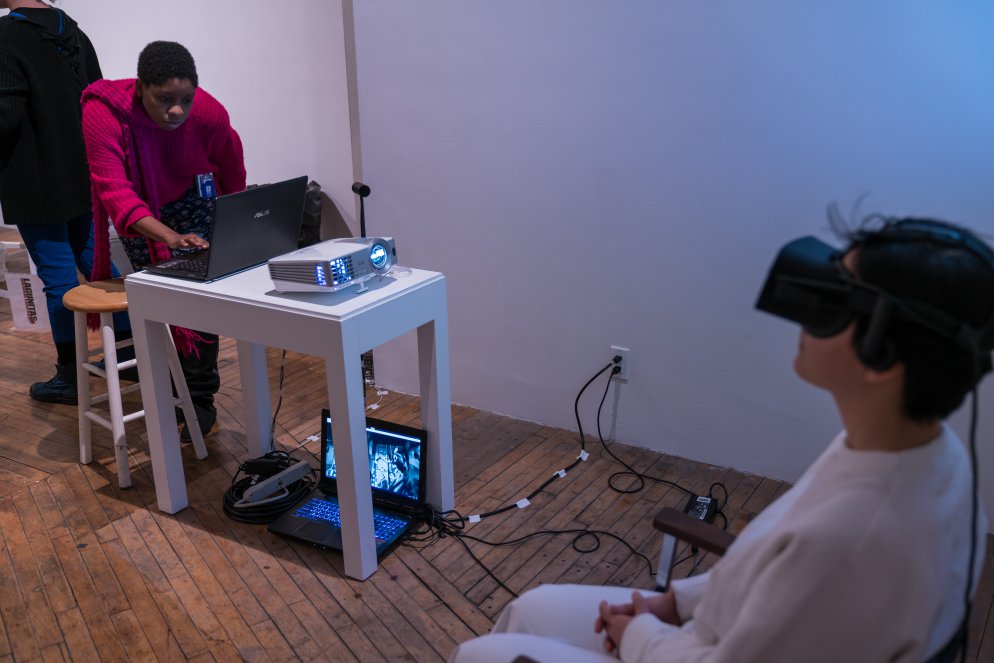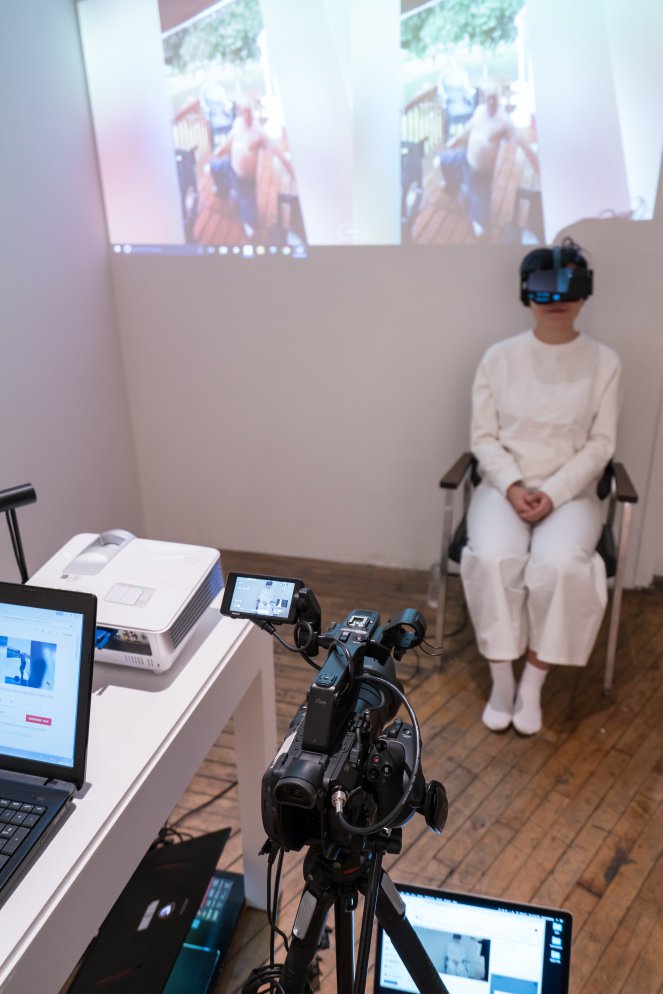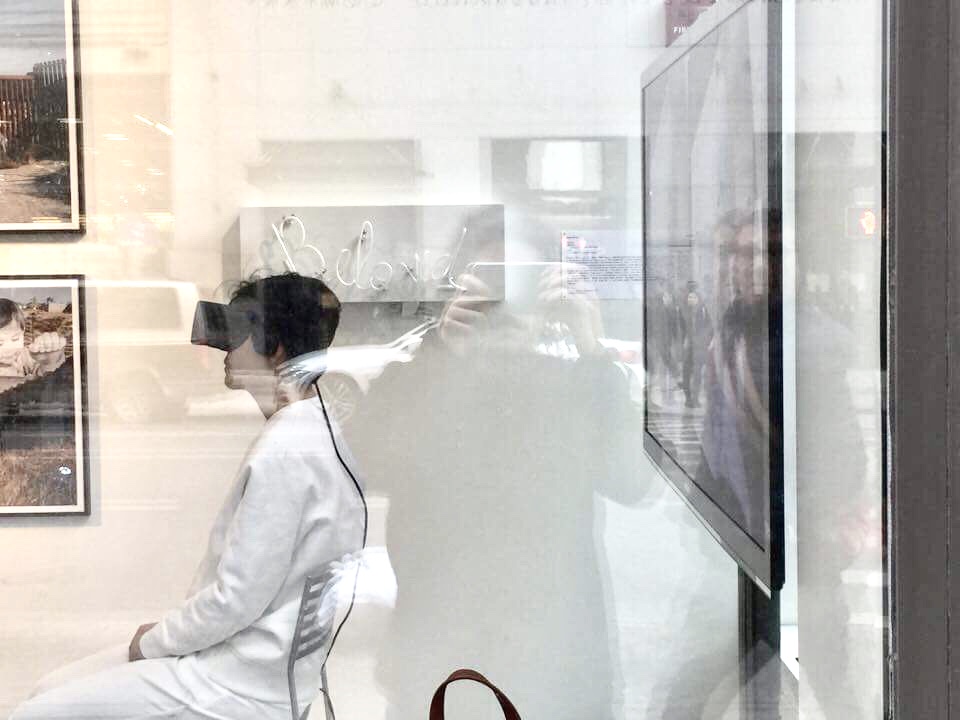The Act of receiving I / On Sight (2017)
The Act of Receiving is a series of works examining what it means to be a receiver of information. This is Act I.
This is a durational performance piece where I sit in a virtual reality headset, but have no control of what I see. My audience can decide from either online or at the site of the performance to show me any videos, or to reveal their faces and talk to me through their webcams. They will be able to see what I am seeing in VR at the moment, and a live stream of my reaction to their content.
Once the video/webcam footage is submitted, it will be immediately mapped onto the four “walls” in my virtual environment, so I will not be able to look away from any point of view. The videos would keep on playing in loop, until another one is submitted.



In the past two years, I have found myself increasingly overwhelmed by information. I have become irritated, exhausted, but also addicted to being a receiver. I am consumed by it before even having a chance to say no (think push notifications, pop-up ads, auto-play videos, etc.), or, I miss the information I actually want to receive because the algorithm has already decided for me.
Tristan Harris argues there’s no more respectful delivery of information. Instead, our daily activities are being constantly interrupted, and we were tricked into thinking we could miss something important. Additionally, I want to add that we, as receivers, are always on the weaker side of the power structure, regardless of who we are fighting against - the sender, the messenger, or the information itself. Therefore, in the process of receiving, we often find ourselves giving up consent to something we had never agreed to.
In our relationship with information, we experience the sense of vulnerability, powerless-ness, embodiment or the lack thereof. I attempt to magnify these feelings by deliberately re-creating it.
I find the question of vulnerability in VR particularly interesting, because one is placed in this "almost-reality" environment, yet feeling more exposed than reality. One is constantly worried about falling out of balance, or being frightened by something unexpected.
When I tried the social VR application Facebook Spaces, I was intrigued that one user has the power to change another’s virtual environment immediately and completely, simply because we are Facebook friends, and we agree to be in this app together. I wonder, as we move toward a more immersive future, will receiving information, in extreme forms like this, ever require a “button" of consent?
Exhibitions:
Refest 2.0, La Mama Galleria - CultureHub, March 8 - 9, 2018 (each day for two hours)
ITP Winter Show, December 17 - 18, 2017 (each day for four hours)